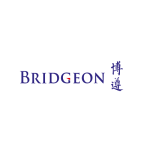In March 2021, the China Congress enacted a series of laws to strengthen patent protection. This is a signal that a defendant may face a higher amount of compensation once a patent infringement is confirmed by a court. So, it is time for a business to prepare itself for the future patent infringement litigation.
Typically, a plaintiff has been well-prepared for a patent infringement lawsuit when a complaint is filed, while a defendant is a party who is passively involved in the litigation and is not well prepared. Although a court generally grants some time, generally 15 days in China, for the defendant to prepare a response or evidence, it is far from enough time for the defendant to establish a proper strategy to defend himself.
As such, stay or suspension of the infringement litigation may be one of the best strategies for the defendant in the early stages. On the one hand, the defendant will have more time to analyse the complaint and the evidence of the plaintiff and to decide strategies for a non-infringement defence. On the other hand, the defendant can leverage this suspension period to file a patent invalidation request with the patent office to challenge the patentability of the patent in dispute.
Generally, the trial period for a patent invalidation proceeding is approximately nine months. If the patent office issues a decision which invalidates the claims of the patent in dispute before the court makes a judgment, the court may directly dismiss the case. Even if the claims of the patent in dispute is not invalidated, the statements made by the patentee in the invalidation proceeding, as well as the content of the decision made by the patent office, will still be limited and restricted to the scope of the patent.
Stay or suspend the patent infringement litigation
One of the effective actions a defendant could take to stay or suspend the patent infringement litigation when receiving a complaint from a court is to file an objection to a jurisdiction of the court, that initially receives the complaint.
Bridgeon Law Firm has extensive experiences in handling patent infringement litigation and has filed many such jurisdiction objections for defendants. One of Bridgeon Law Firm's cases shows how to file a jurisdiction objection in China.
Filing a jurisdiction objection
According to current Chinese practice, after receiving the complaint forwarded from the court, the defendant is granted a 15-day period to submit a brief of defence. Within the 15-day period, the defendant can also file a jurisdiction objection.
The court will stay the patent infringement trial and will start to examine the jurisdiction objection. If the court comes out with a decision to dismiss the jurisdiction objection, the defendant can further file an appeal against the court's dismissal decision. By going through an additional litigation procedure, the stay period of the patent infringement litigation may be further extended.
|
|
“the very first thing for the defendant to consider is the timing for submitting a request” |
|
|
Although the jurisdiction objection proceeding can give the defendant some extra time in the litigation, inappropriate jurisdictional objections will make the court believe that the defendant is in bad faith and is wasting judicial resources. This may exert adverse influences on subsequent trials and may even result in punishments from the court. For example, the Guizhou Court issued a fine of RMB 200,000 (approximately $30,654) and the Beijing Court issued a fine of RMB 100,000 for inappropriate jurisdictional objections.
So, what is a proper and reasonable jurisdiction objection? A recent infringement lawsuit between Norguard and Moncee handled by Bridgeon Law Firm may explain how to successfully file such a jurisdiction objection with a Chinese court.
In the Norguard v Moncee case, Norguard filed a patent infringement complaint against Moncee in the Shanghai Intellectual Property Court (Shanghai Court). Moncee entrusted Bridgeon Law Firm to examine the evidence submitted by Norguard. It found that a chain of evidence could not be formed to establish a connection between the litigation and the jurisdiction of the Shanghai Court.
According to Chinese practice, for a patent infringement lawsuit, connections to jurisdiction may include the place of domicile of the defendant and the place where the infringement occurs. The two connections were challenged by Bridgeon Law Firm using the evidence submitted by Norguard and finally Bridgeon Law Firm's opinion was wholly accepted by the Shanghai Court.
Firstly, Norguard asserted that Moncee had sold or offered to sell the alleged infringing products via the official website of Moncee and other online shopping platforms and submitted copies of such website and platforms. However, after checking the evidence, Bridgeon Law Firm found that none of the evidence showed an address in Shanghai. Accordingly, Bridgeon Law Firm held that the evidence could not establish a connection to jurisdiction of the Shanghai Court.
Second, for infringements over information network, the place of domicile where the plaintiff is located may also be a connection to the jurisdiction. Foreseeing an argument of Norguard that the alleged infringement in this lawsuit was an infringement over information network, Bridgeon Law Firm further explained the definition of "infringement over information", and the differences between the alleged infringement in the present lawsuit and "infringement over information". This foreseeable argument in the jurisdiction objection request was fully accepted by the court.
Furthermore, Norguard also asserted that Moncee had performed the sale act of the alleged infringing product and Norguard purchased some of the alleged infringing products. Bridgeon Law Firm noticed that the purchase process showed by Norguard missed some points and thus was not continuous.
One piece of evidence provided by Norguard showed that a courier parcel was received in Shanghai, but the recipient of the courier was not Norguard. Norguard also provided a purchase invoice showing that the seller of the alleged infringing product was Moncee. However, the buyer showed on the invoice was another company located in Jiangsu, rather than Norguard.
Bridgeon Law Firm argued that the invoice provided by Norguard was evidence showing that the purchase act did not occur in Shanghai. The evidence provided by Norguard was against Norguard itself. As for the delivery destination of the parcel, although the destination was Shanghai, the parcel was obviously not sent by Moncee. This parcel could not demonstrate an intention of Moncee to sell products in Shanghai. The delivery destination of the parcel was not a place where the sale act was conducted or a place where the alleged infringement occurred. Therefore, Shanghai was not the place where the alleged infringement occurred and the Shanghai Court had no jurisdiction over this lawsuit.
Eventually, the Shanghai Court accepted all of Bridgeon Law Firm's opinions in the jurisdiction objection request and ordered to forward this case to the court where Moncee is located.
In this case, through the jurisdiction objection request, Moncee could attend the patent infringement litigation in its place of domicile, which would be much more convenient.
On one hand, Moncee could receive information and notifications from the local court in a timely manner and refrained from long travels to Shanghai to participate in the lawsuit.
In addition, owing to the stay of the trial of the patent infringement litigation during the period of jurisdiction objection proceeding and the period of transferring the lawsuit, Moncee could have plenty of time to perform a deep inspection into the patent of Norguard and formulate strategies for non-infringement defences.
Moreover, Moncee could have sufficient time to file an invalidation request to challenge the patent in dispute and get a result before the conclusion of the patent infringement case.
Summary
It is very meaningful and beneficial for the defendant to buy time for itself through a jurisdiction objection request. In order to request jurisdiction objection, the very first thing for the defendant to consider is the timing for submitting a request. The defendant should request a jurisdiction objection within 15 days after he receives a complaint forwarded from the court. The defendant will lose the opportunity if he misses the time limit.
|
|
“the defendant should foresee possible arguments of the plaintiff as well as possible concerns of the court” |
|
|
Another aspect of a jurisdiction objection is that the grounds for the objection are proper and lawful. Otherwise, it may result in an adverse influence on the later trials. The court may deem that the defendant requests the jurisdiction objection in bad faith and would deem the arguments of the defendant in the trials were less convincing. Even worse, the court may order a punishment to the defendant. In most situations, the evidence of the plaintiff could be used to be against the plaintiff itself. The attorney of the defendant will dig into the evidence and find a solid foundation for the jurisdiction objection request, although it is a challenging task for the attorney to do so within a limited time period.
Last but not least, when the defendant files a jurisdiction objection, the defendant should foresee possible arguments of the plaintiff as well as possible concerns of the court, so that the defendant can put forward the reasons for the objection in a targeted manner, thereby increasing chance of success for the jurisdiction objection.
Click here to read all the chapters from MIP's China Special Focus

Wei Shi
Partner
Bridgeon Law Firm
T: +86 10 6599 4801
Wei Shi is a partner at Bridgeon Law Firm and has been a patent attorney dealing with overseas patent procedures for over 10 years.
Wei has gained extensive experiences in patent drafting, filing and prosecution. In particular, he excels in patent drafting in both Chinese and English. He is specialised in sectors such as telecoms, computer science, and micro-electronics.
Wei has a master's degree in computer science from Florida International University. He is proficient in English and Japanese.

Youping Ma
Founding partner
Bridgeon Law Firm
T: +86 10 6599 4801
Youping Ma is a founding partner of Bridgeon Law Firm and is a Chinese attorney-at-law and patent attorney.
With almost 20 years dealing with both domestic and international patent matters, Youping has worked on many high profile infringement litigations and invalidations cases. She has been entrusted with numerous duties by professional institutes including Beijing Lawyers Association. She has been a frequent public speaker on IP related forums such as the 2019 AIPPI World Congress and China DRM Forum.
Youping earned a dual degree in computer science and law from Peking University.












